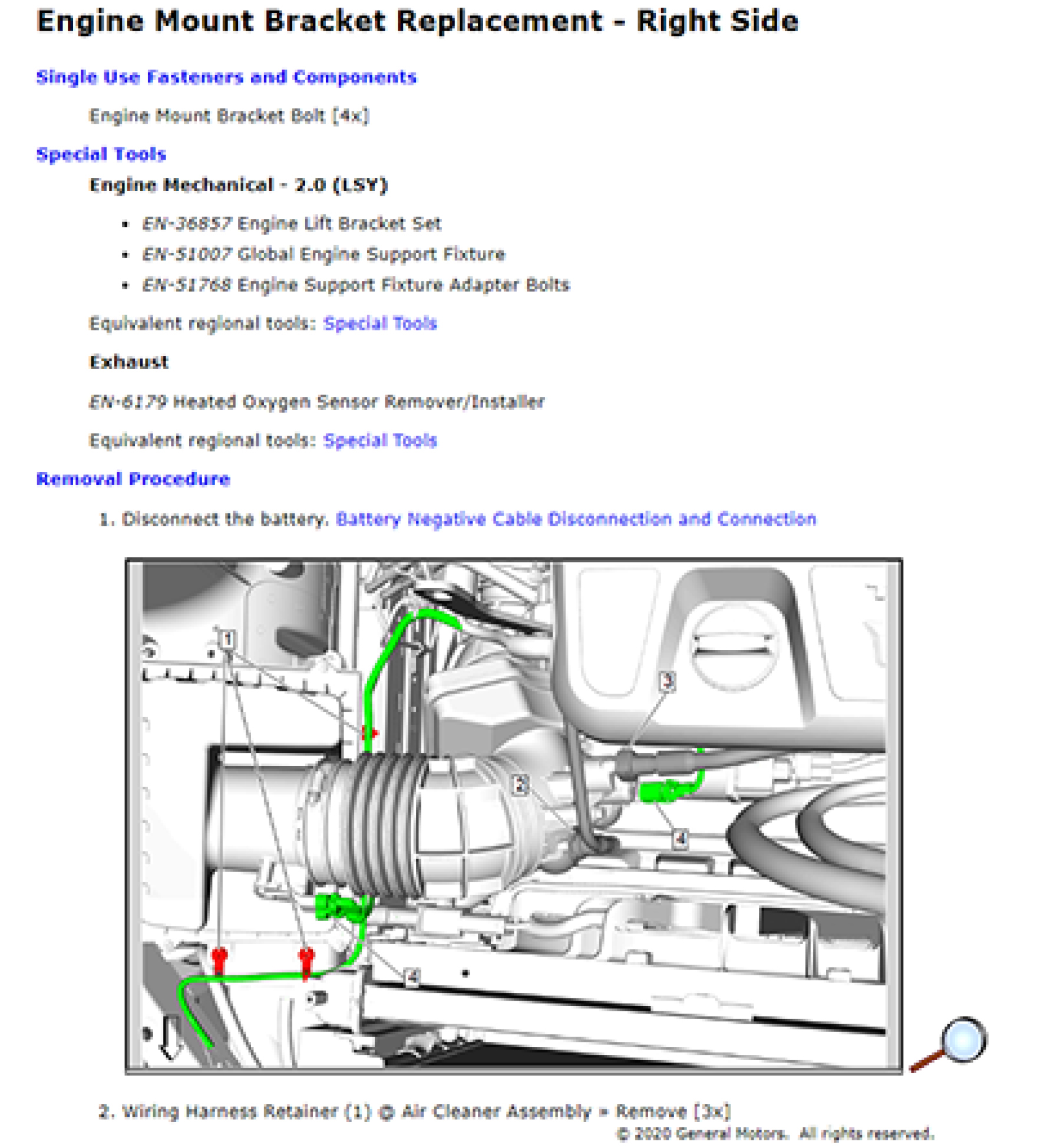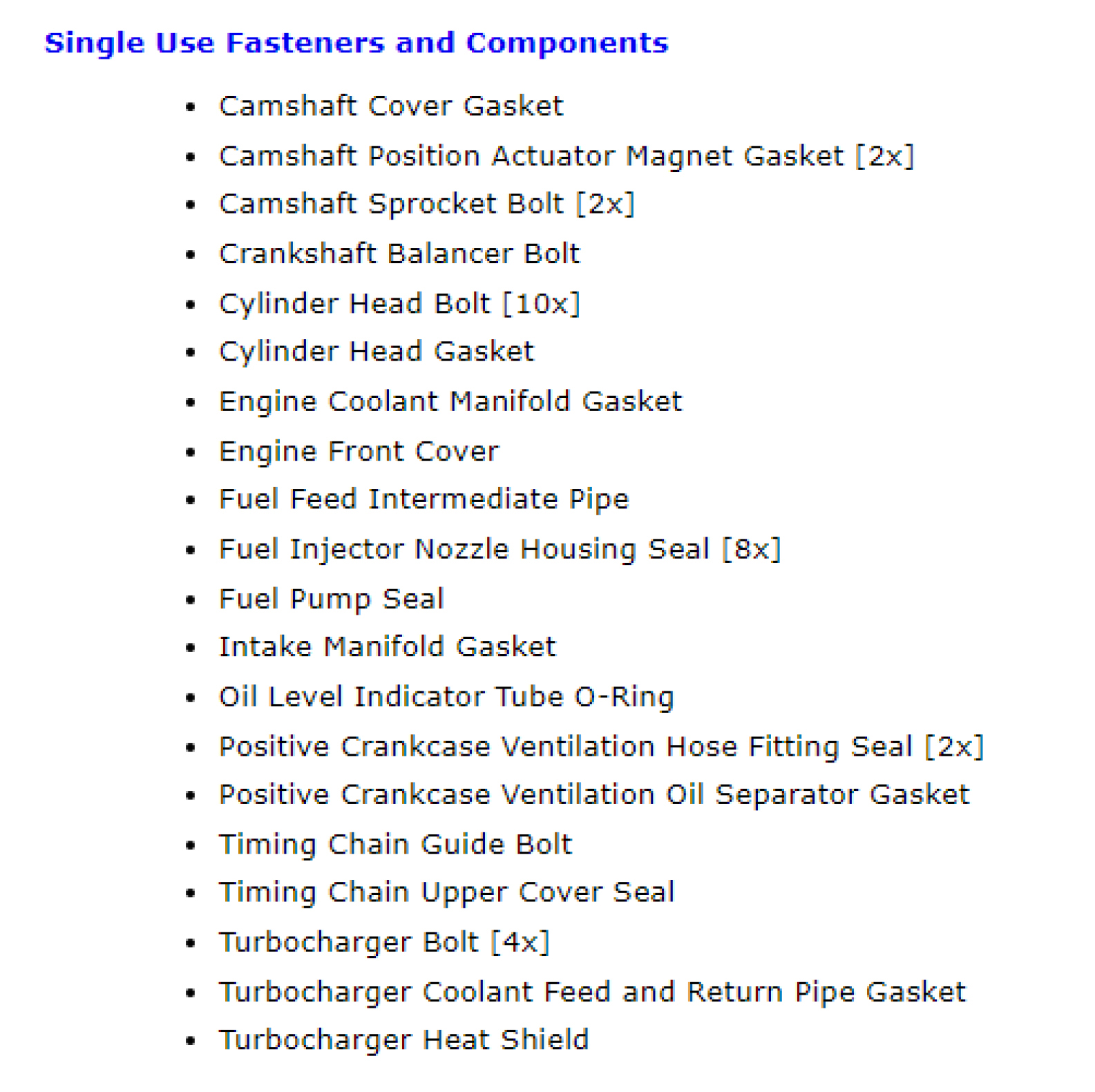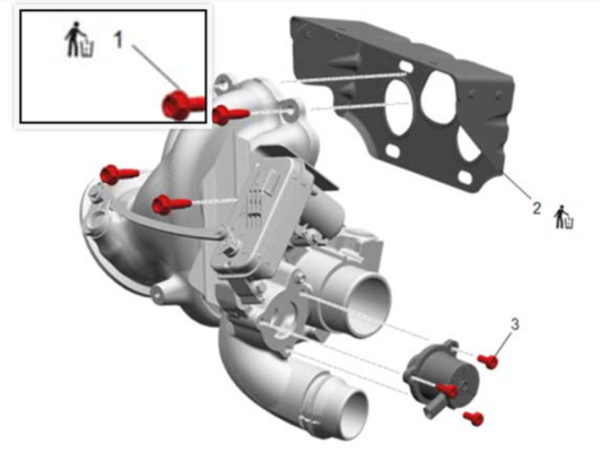
Recent updates to GM Service Information (SI) can help technicians save time while making it easier to follow certain repair procedures. The changes involve format and content, and apply
only to Removal/Installation and Replacement procedures. Other areas, such as Diagnostics and Schematics, are not affected.
This new authoring style will be implemented with the 2020 Cadillac CT4 and on new or major vehicle program updates for the 2021 model year. Most existing vehicle programs will maintain
the current format until the next major redesign of those particular models.
ENHANCEMENT OVERVIEW
UPDATED REMOVAL/INSTALLATION AND REPLACEMENT PROCEDURES —
These will feature more detailed steps and fewer links to other SI documents. The enhancements
only include the specific steps necessary to complete the repair. At first glance, the procedures
may appear longer, but these “added” steps had already existed in previously linked procedures.

The links that remain in the Removal/Installation and Replacement procedures will be limited to
steps that will always be performed, regardless of where they are used. Examples of these links
include SIR Disable/Enable, Lifting and Jacking, and Fuel Pressure Relief.
LIST OF SINGLE-USE FASTENERS AND COMPONENTS —
Procedures will begin with a list of all single-use fasteners and components as well as the
quantities required to complete the repair. Having an initial list of replacement fasteners and
components that are needed for the job will help technicians avoid repair delays.

Procedures now include a list of all
single-use fasteners and components.
ENHANCED SPECIAL TOOL LISTS —
Special tool lists have always appeared in service procedures. With the new format, there will
be an increase in the number of tools used within certain procedures. Because of the increase,
the list at the beginning of the procedure will be organized to show the subsection titles and will
include the “Special Tools” link for the subsection where a particular tool originates.
FASTENER SPECIFICATIONS —
Torque specifications have been removed from the service procedures, but are accessible
through a “Fastener Specification” link that will address the particular fastener being installed and
tightened.
TABLES —
Fastener specification tables will feature a more visual format, making it easier to identify the
location of the fasteners being tightened. Tightening sequence images have been added, as well.
In most cases, the graphics will only include callouts for the fasteners and components mentioned
in the tables.
COMPONENT IDENTIFICATION —
Currently, single-use fasteners and components are identified in the respective steps with the text
“Remove and DISCARD” and “Install NEW.” With the new format, that verbiage will continue with
additional enhancements: Along with the previously mentioned list of “Single Use Fasteners and
Components” that appears at the beginning of every procedure, graphics that show a single-use
fastener or component will include a “trash can” icon next to the callout. The icon will appear in
the procedure and fastener table graphics.

A new trash can icon has been added to some
graphics to remind technicians when a given
fastener
or component is single-use only.

